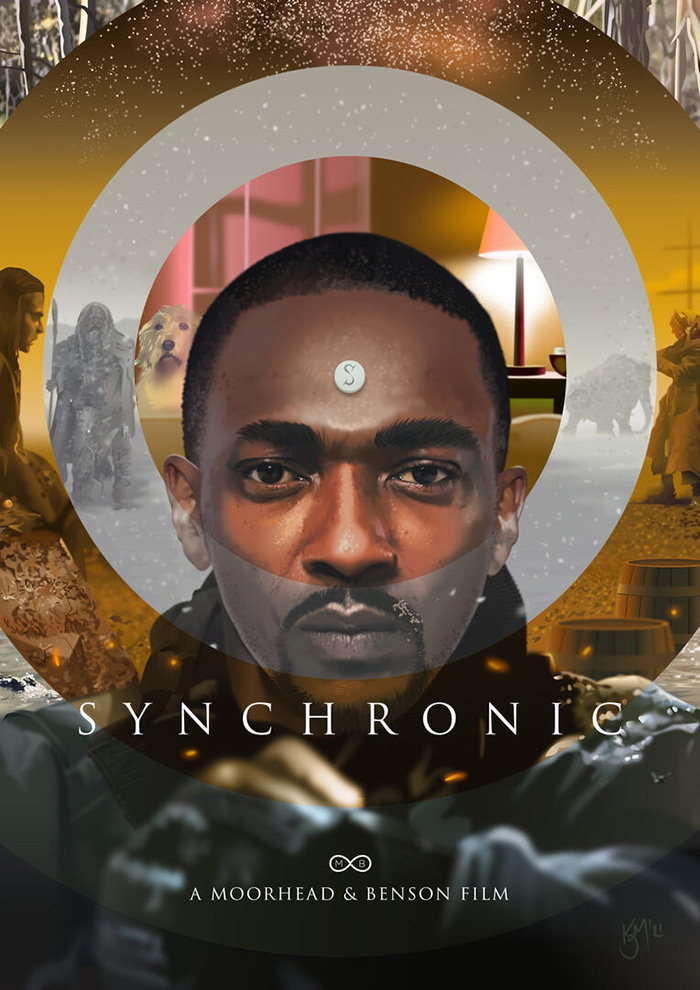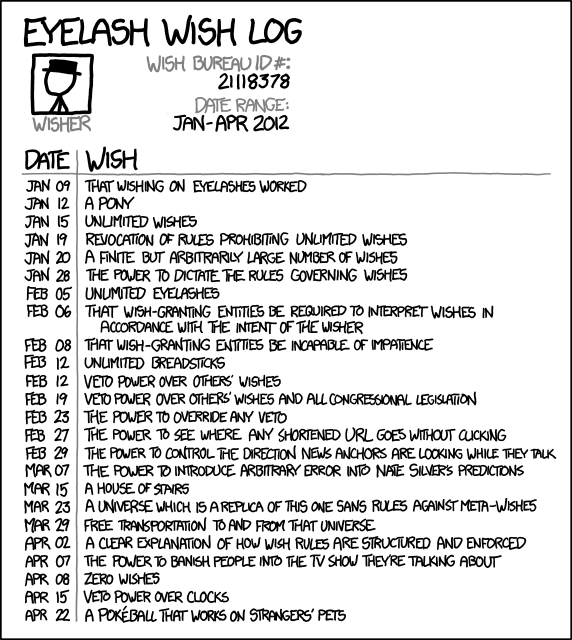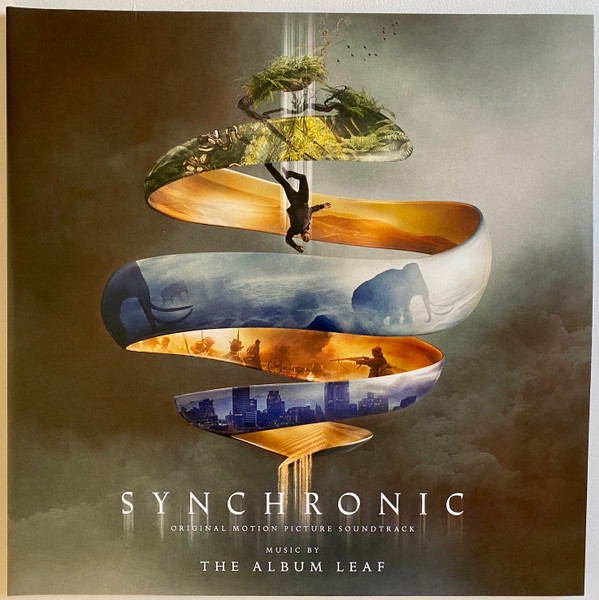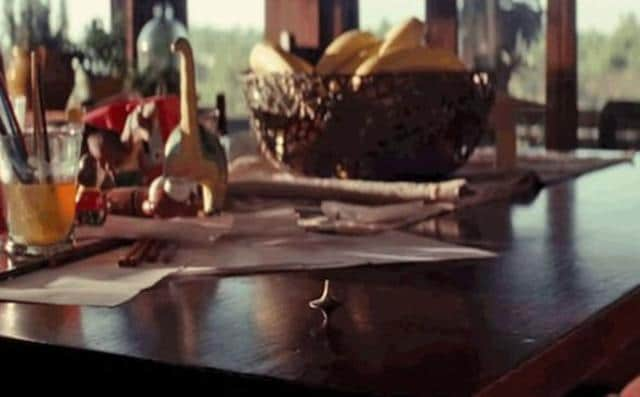A good film, stuck inside a bad film...
Synchronic
I usually think, a lot… but for me the most enjoyable films are when that stops, and they just kind of sweep me out of that mental state. Then, as long as nothing too egregious happens, I’m OK with whatever options are avoided for the sake of the narrative while I wonder what will happen next. I’m lost in the progression of events or characterisation, or thinking what I would do in a particular character’s position.
Unfortunately that wasn’t the case with the film Synchronic, and that made me think about my thinking.

An alternative movie poster I particularly liked
( by chance I caught the start of The Village recently, and that film has the same issue for me… once you hit “why not burn or build a way through the forest?” or “where did all these people come from?” to then “why is that stored there?” or “why is there no aeroplane noise?” then the more enquiring side of my mind has engaged… and I’m irrevocably down a more thoughtful path )
This post is very much written with the expectation that you’ve seen the film… if not, I’m not sure that I recommend that you do. The basic premise is that a designer drug lets people travel backwards in time… which makes no sense of course, but it’s such an off the wall idea that I was over-ridingly intrigued by what the filmmakers would do with it. And, of course, from a narrative point of view, all the usual questions over time-travel applied:
- does the past traveled to affect the current time on return?
- does a person’s memory persist separate to whatever happens in the affected timeline?
- can I hide objects in the past to retrieve them in the future?
… and so on. Time-travel has always fascinated creators while having no real world equivalent, so there’s no established rules or laws, so I’m always curious in how such a narrative extreme will be handled.
I’m not sure if “diegetic logic” is a thing, but as long as the film’s idea of what’s permitted holds together, it can take me a long way - which is in contrast to my general mental approach as something of a “devil’s advocate” to everything.

I have a lot of questions, all the time
But with my “what would I do?” mindset on the immediate “I can time-travel with pills” and then “I have limited pills left to rescue my friend’s daughter” situation, that prompted all sorts of thoughts and plans… none of which the film answers, and none of which the characters consider…
- Why do they time travel unarmed, or unprepared?
- Why not take a phone as a camera?
- Why not take something back, hide it, and then try and find it in the current time?
- If I caused an incident, why not research for reports of the incident in contemporary news resources to understand how the timeline works?
- Why not wait until I’m sober before I jump?
- Why not see if the scientist left any notes that others can use?
- Why not take my last few pills to someone who can analyse them to reverse engineer and replicate the manufacturing process?

why yes, I would wish for more wishes
The performances in the film were convincing and well executed, the characters were believable and likeable and I was rooting for them, and the low budget wasn’t evident.. to me at least… which is why I was swept along… and why the logical failures were so jarring.
But I kind of liked the conceit in the film, that leaving from a certain geographical point took you back a specific amount of time unfathomably related to that point… for me that was crying out for an analysis montage. I liked that the main character started thinking about how the pill-based time travel worked, I would have liked to have seen that explored a lot more.

The soundtrack album cover, which I find interesting when thinking about its time-travel
I mean partly this questioning just makes me a sub-par Everything Wrong With ruining my own enjoyment… but also it’s just a different kind of fun. Part of the reason I’m writing this out is because I wonder how common this is, and in my day to day life I’m still looking for niches where it’s useful - once “why this project won’t work” has occurred to me, I was kind of doomed to see how it will fail, rather than just trudge along the Death March along with everyone else.
And then the inconclusive ending is just annoying. For something like Inception I understand leaving the ending open, and how thought provoking it is. But I think the “rules” of reality in Inception were really well established, so the meaning of the moment was clear. In Synchronic attachment to an object in the current time from the time you’ve traveled to should bring you back… but shaking someone’s hand - with a frankly weird stoic look - doesn’t… or does… we don’t know. Leaving the main protagonist’s story unfinished felt more “we didn’t know how to end this, so we didn’t” rather than anything more meaningful.

